Search Fellows
Click on a Fellow below to view more information or create your own search.
Krista M. Perreira
University of North Carolina, Chapel Hill
Visiting Scholar
2008 to 2009
Krista M. Perreira, Associate Professor of Public Policy at the University of North Carolina, Chapel Hill, will synthesize six years of research into a comprehensive book on Latino immigration to the American South. Focusing on what we can learn about “new” immigrant destinations, Perreira will assess the migration and acculturation experiences of Latino youth and their parents in the South. Perreira will also evaluate how non-Latino youth and their families are responding to the recent influx of Latino immigrants.
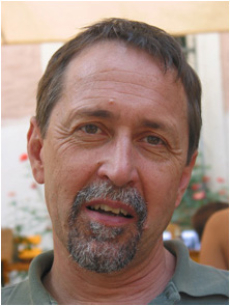
Jonas Pontusson
Cornell University
Visiting Scholar
2004 to 2005
Jonas Pontusson will develop a project exploring the political consequences of economic inequality, addressing its effects on policy preferences, politics, interest groups, and mobilization in several countries. Specifically, he will explore how rising wage inequality affects the ability of unions to aggregate interests and mobilize their members politically.
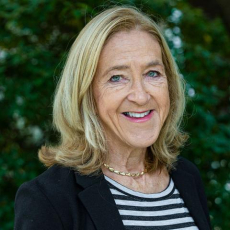
Anne E. Preston
State University of New York, Stony Brook
Visiting Scholar
1997 to 1998
Anne E. Preston, associate professor at the W. Averell Harriman School for Management and Policy, State University of New York at Stony Brook, explored the reasons for the dearth of women in professional scientific and engineering careers. Even among the relatively few women who receive scientific educations, many eventually cut short their careers. Preston analyzed the employment experiences of men and women in the sciences to determine whether the factors motivating occupational success or exit vary by gender.
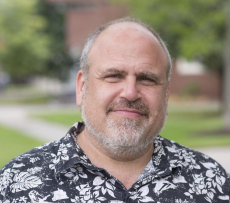
Matthew Rabin
University of California, Berkeley
Visiting Scholar
2012 to 2013
Rabin and Erik Eyster will investigate the nature of learning and information transmission in social and economic settings. Rabin will complete a book on psychology and economics that examines the psychology behind the exchange of information.
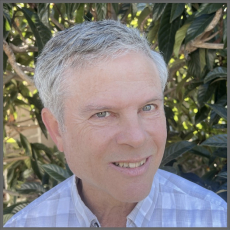
James E. Rauch
University of California, San Diego
Visiting Scholar
1995 to 1996
James E. Rauch, associate professor of economics at the University of California, San Diego, and research associate, National Bureau of Economic Research, engaged in a study of what he terms the "network/search view of trade" as applied to the difficulties African Americans experience in gaining a foothold in inner-city retail trade. Many connections between buyers and sellers, he argues, are made through a "search" process conditioned by proximity and pre-existing ties ("networks"), rather than through centralized markets.
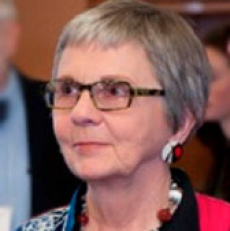
Cordelia Reimers
Hunter College
Visiting Scholar
1996 to 1997
Cordelia W. Reimers, professor of economics at Hunter College and the Graduate School of the City University of New York, studied changes in the wage structure of ethnic and racial minority groups in the United States, especially African Americans and Mexican Americans. She completed a paper on "Unskilled Immigration and Changes in Wage Distribution of Black, Mexican American, and Non-Hispanic White Male Dropouts" and also wrote a chapter on "Compensation for the Latino Worker" for the National Council of La Raza's State of Hispanic America 1997.
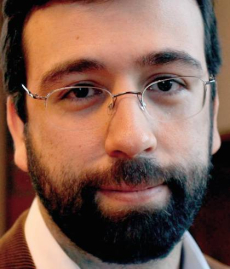
Ricardo A. M. R. Reis
Columbia University
Visiting Scholar
2011 to 2012
Reis will research the impact of social transfer programs, including unemployment and disability insurance, Medicaid, and pensions, on employment and economic activity during a recession. He will analyze whether such programs—and the increased government spending that accompanies them—are effective at lowering unemployment and if they help or hinder economic recovery.
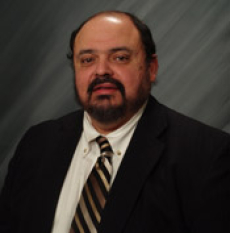
Francisco L. Rivera-Batiz
Columbia University
Visiting Scholar
2003 to 2004
Francisco L. Rivera-Batiz, professor of economics and education at Columbia University, will write a book that examines the changing demographics, socioeconomic status, and racial identity of the nearly 7 million Puerto Ricans living in the United States—both on the island and the mainland—during the 1990s. Rivera-Batiz will analyze the forces that contributed to the drop of migration to the mainland, the sharp drop in national Puerto Rican poverty levels and the persistence of poverty among Puerto Ricans living in New York City.
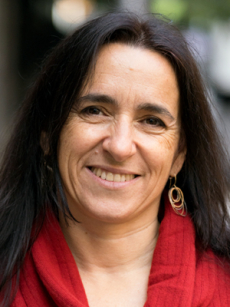
Núria Rodríguez-Planas
Queens College, City University of New York
Visiting Scholar
2023 to 2024
Rodríguez-Planas will explore how low-income and minority urban college students have coped during the pandemic. She will draw on surveys with over 24,000 students, City University of New York academic records, and New York City COVID data to examine how the pandemic affected students’ academic performance, as well as their educational and labor market expectations and trust in the government and members of their community.
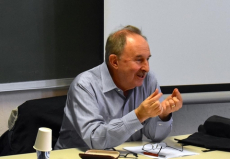
John Roemer
University of California, Davis
Visiting Scholar
1998 to 1999
John E. Roemer, professor of economics at the University of California, Davis, will expand on a theory of distributive justice aimed at creating equal access to social resources. In particular, Roemer will apply economic techniques to the problem of equalizing educational opportunities for American youth by investigating what allocation of the national education budget would be required. In a second project, Roemer will examine how political parties compete and maintain equilibrium in a democracy.
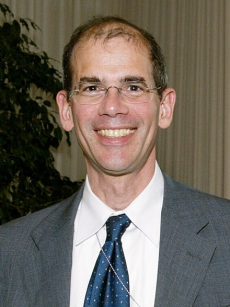
Harvey S. Rosen
Princeton University
Visiting Scholar
1996 to 1997
Harvey S. Rosen, professor of economics at Princeton University, examined data from the Panel Study on Income Dynamics and other sources for a study of the relation of entrepreneurship to income mobility. He completed the first draft of a paper in which he concludes that there is some merit to the notion that self-employment provides a way for low-income individuals to increase their incomes, although for higher income people, self employment often leads to downward movement in the earnings distribution.
Working Papers:
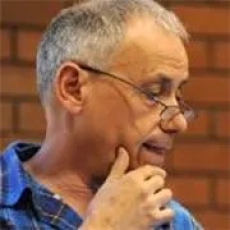
Ariel Rubinstein
Tel Aviv University
Visiting Scholar
1996 to 1997
Ariel Rubinstein, professor of economics, Tel Aviv University and Princeton University, worked on a book, Modeling Bounded Rationality, and other topics in behavioral economics, including a joint project with Michelle Piccione on decision making with imperfect recall and an examination of game theoretical models with Martin Osborne. He also worked on another book, Language and Economics.
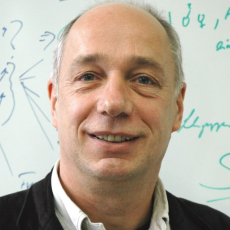
Ronald Schettkat
Utrecht University
Visiting Scholar
2003 to 2004
Ronald Schettkat, professor of economics at Utrecht University, The Netherlands, will compare the amount of time Americans and Germans spend at their jobs and on household activities. Schettkat shows that although Americans spend more hours at their jobs than Germans, they spend less time on household production, which includes childcare, housework, and meal preparation.
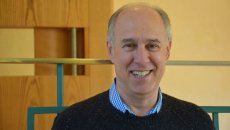
Andrew Schotter
New York University
Visiting Scholar
1999 to 2000
Andrew Schotter, professor of economics at New York University, will study how norms of behavior are created and passed on from generation to generation. Schotter will approach the problem through experimental game theory: players come and go, but games can continue indefinitely, presenting successive generations of players with the same strategic choices. People may respond by blindly following the conventions handed down to them by their predecessors.
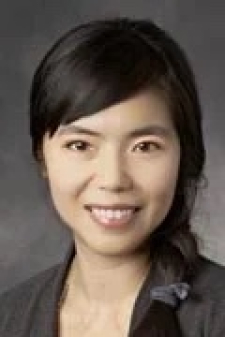
Carol H. Shiue
University of Texas, Austin
Visiting Scholar
2002 to 2003
Carol Shiue, assistant professor of economics at the University of Texas, Austin, will examine the role of extended family networks and intergenerational migration patterns in risk-sharing. Recent scholarship has assumed that the increasing influence of market mechanisms in rural economies will erode traditional kinship relationships based on trust and mutual economic dependence, and give rise to financially independent nuclear households. Yet many such networks effectively reposition themselves in response to new market opportunities without disintegrating.
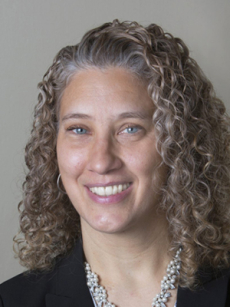
Lara Shore-Sheppard
Williams College
Visiting Scholar
2022 to 2023
Shore-Sheppard will examine pre-retirement (ages 50-61) households with multigenerational or skipped-generation living arrangements. She will focus on how the generosity of safety net programs for families with children, social and economic factors, and the interaction between these factors and safety net generosity impact living arrangements. She will also explore the extent to which living arrangements in pre-retirement years affect the well-being of older adults.
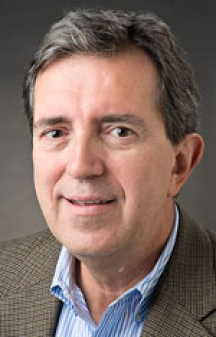
Timothy M. Smeeding
Syracuse University
Visiting Scholar
2007 to 2008
Markus Jäntti, Professor of Economics, Åbo Akademi University, Finland, and Timothy Smeeding, Distinguished Professor of Economics and Public Administration, Syracuse University, form a working group that will compare recent patterns of social and economic mobility in the United States with other advanced economies in an effort to determine whether America’s high rate of economic inequality is mitigated by greater economic mobility.
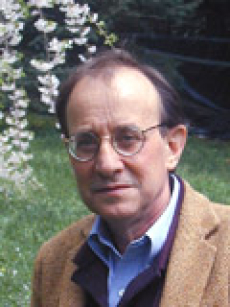
Kenneth Sokoloff
University of California, Los Angeles
Visiting Scholar
2004 to 2005
Kenneth Sokoloff, Professor of Economics at the University of California, Los Angeles, will work on a comparative economic history of the Americas. He will argue that factors of production (e.g. climate and population) predisposed Caribbean colonies - which were well suited for specialization in crops that could be produced cheaply on large slave plantations - to more inequality than existed in northern colonies.
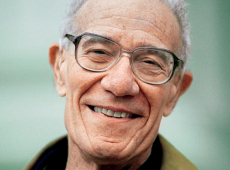
Robert Solow
Massachusetts Institute of Technology
RSF Nobelists
Robert Solow is the Russell Sage Foundation’s Robert K. Merton Scholar and Institute Professor Emeritus at M.I.T. He was a visiting scholar at the foundation from 1999–2000 and became the Merton Scholar in 2001. Known in particular for his work on theories of economic growth, Solow is the recipient of the John Bates Clark Medal (1961), the National Medal of Science (1999), and the Presidential Medal of Freedom (2014), in addition to the Nobel Prize.
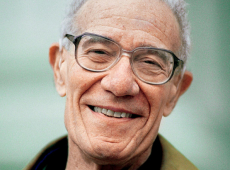
Robert Solow
Massachusetts Institute of Technology
Visiting Scholar
1999 to 2000
Robert Solow, Institute Professor Emeritus at the Massachusetts Institute of Technology, will co-chair the steering committee for the Foundation's project (co-funded by the Century Foundation) on sustaining low unemployment. Solow will also pursue two research projects of his own. In the first, Solow will model how productivity gains depend upon technical change being "embodied" in new investments of physical capital (the latest computer chip technology, for instance, is of no benefit to a firm until that firm invests in new, faster computers).
